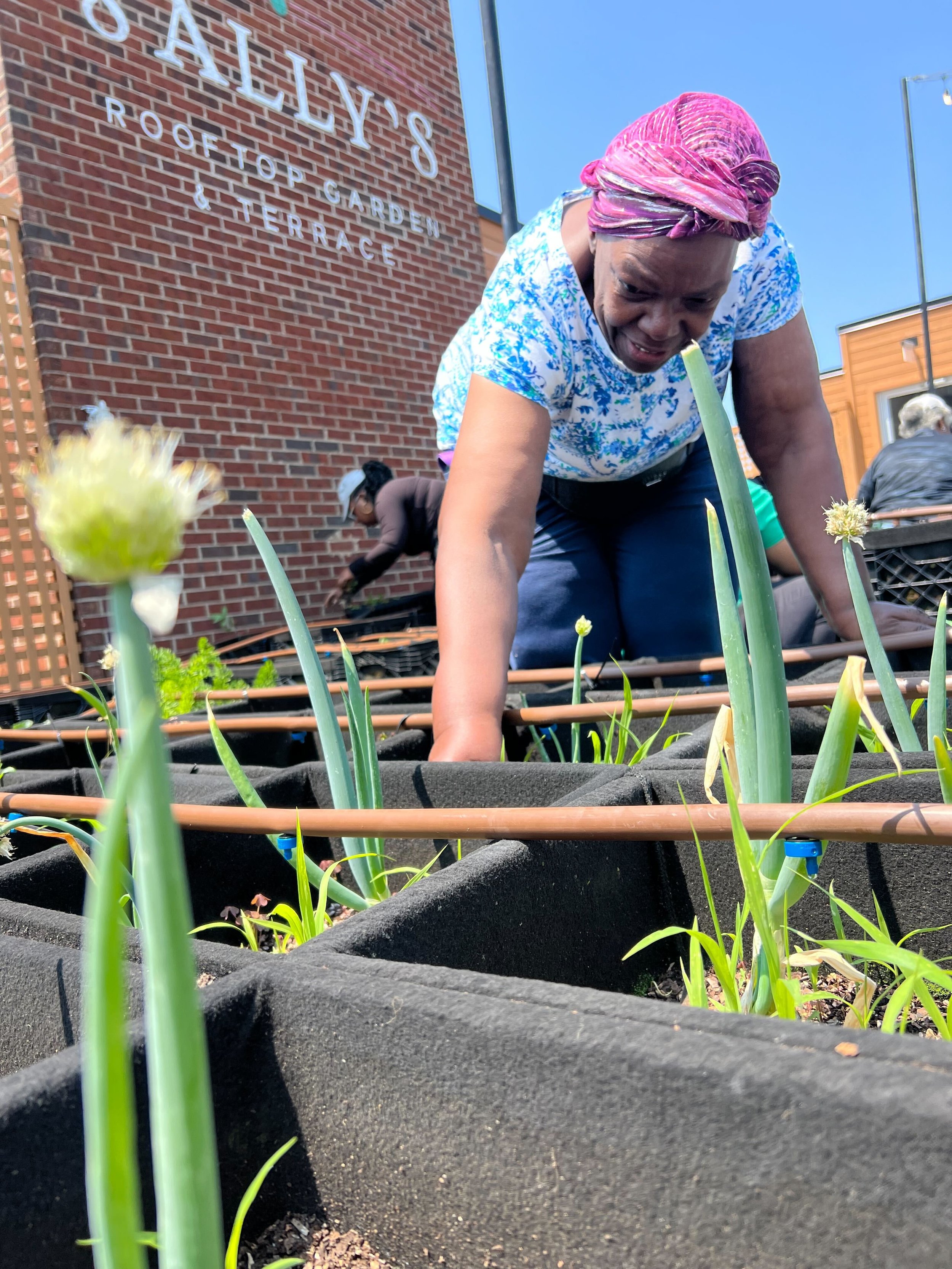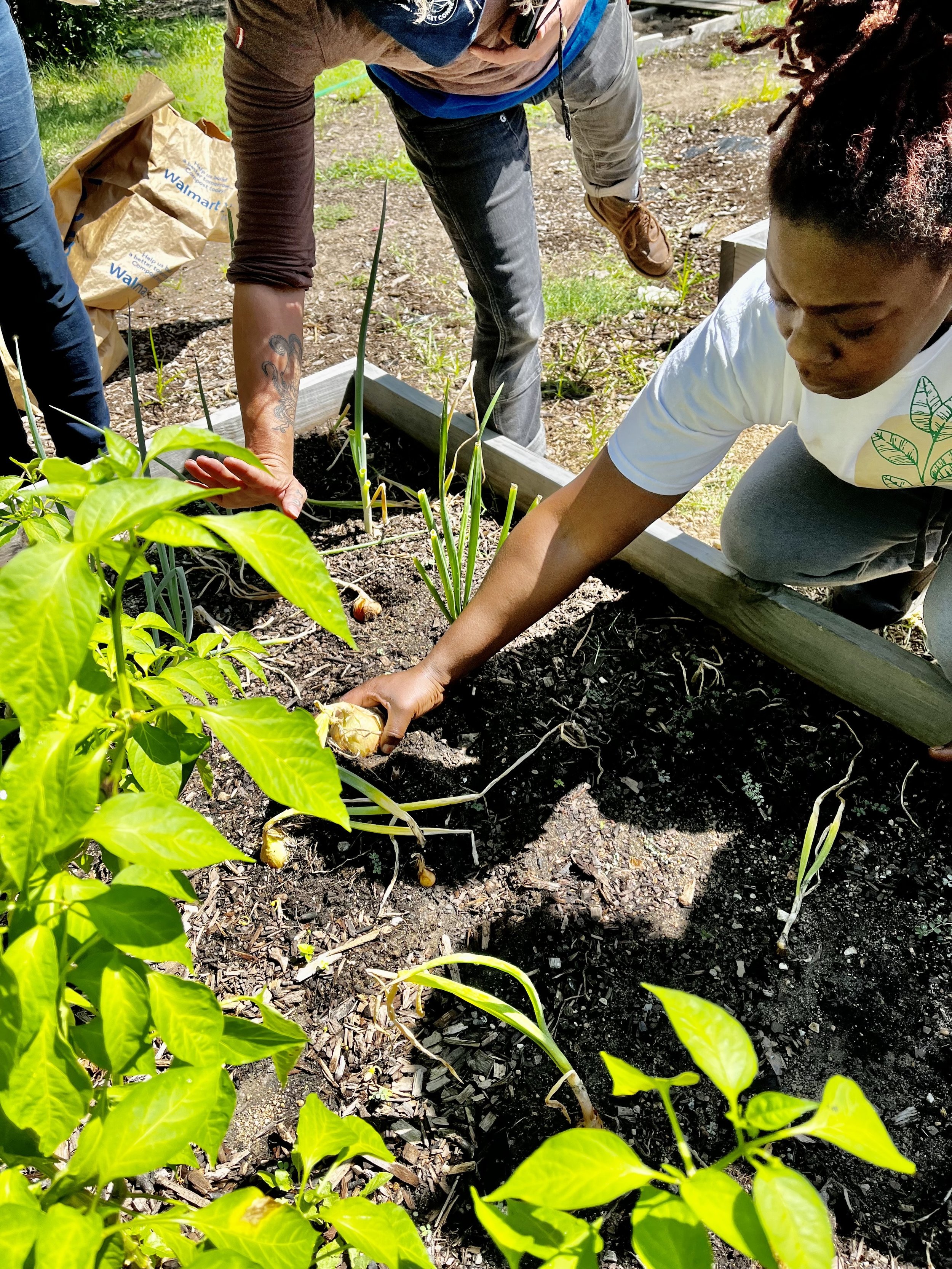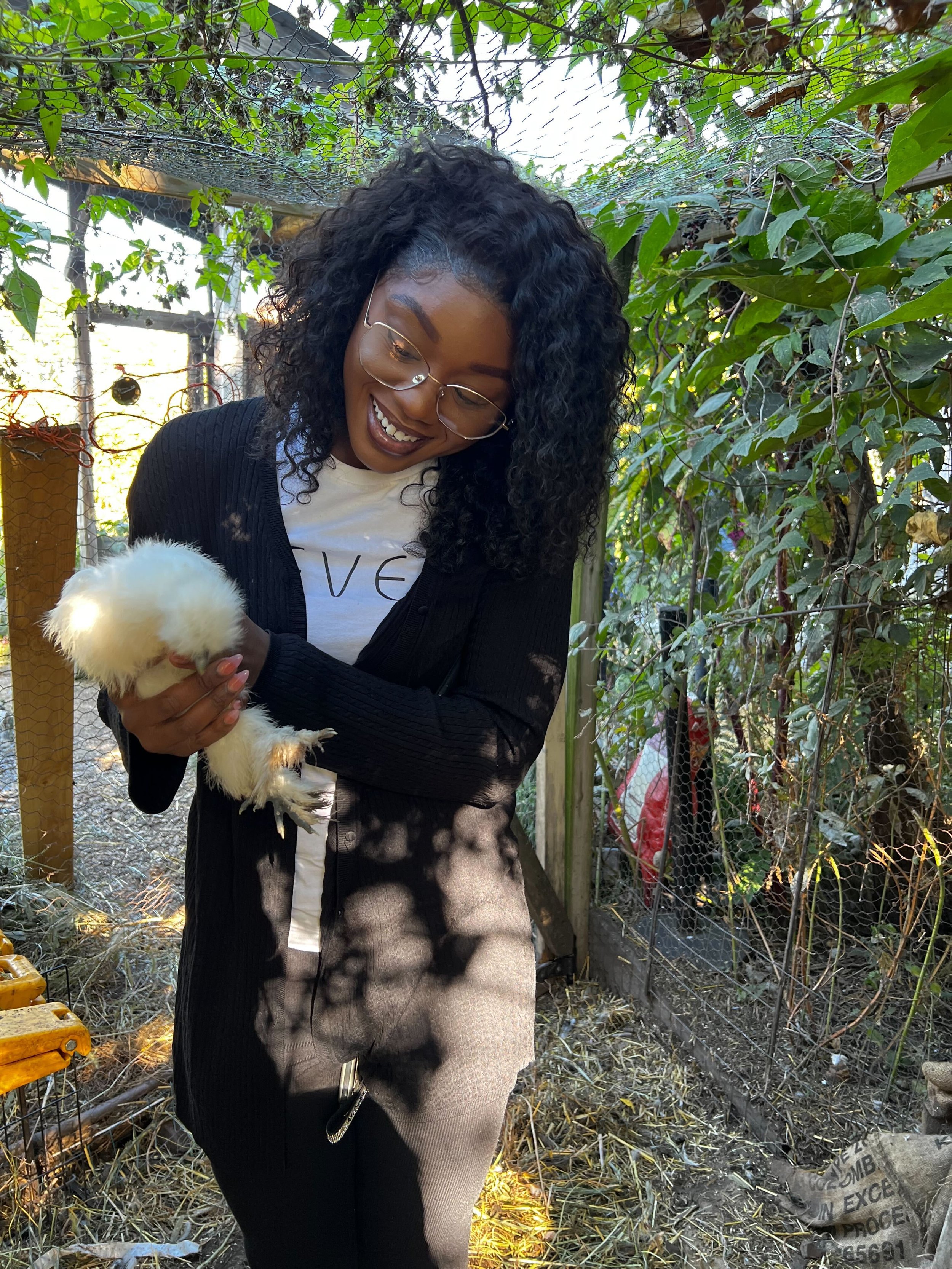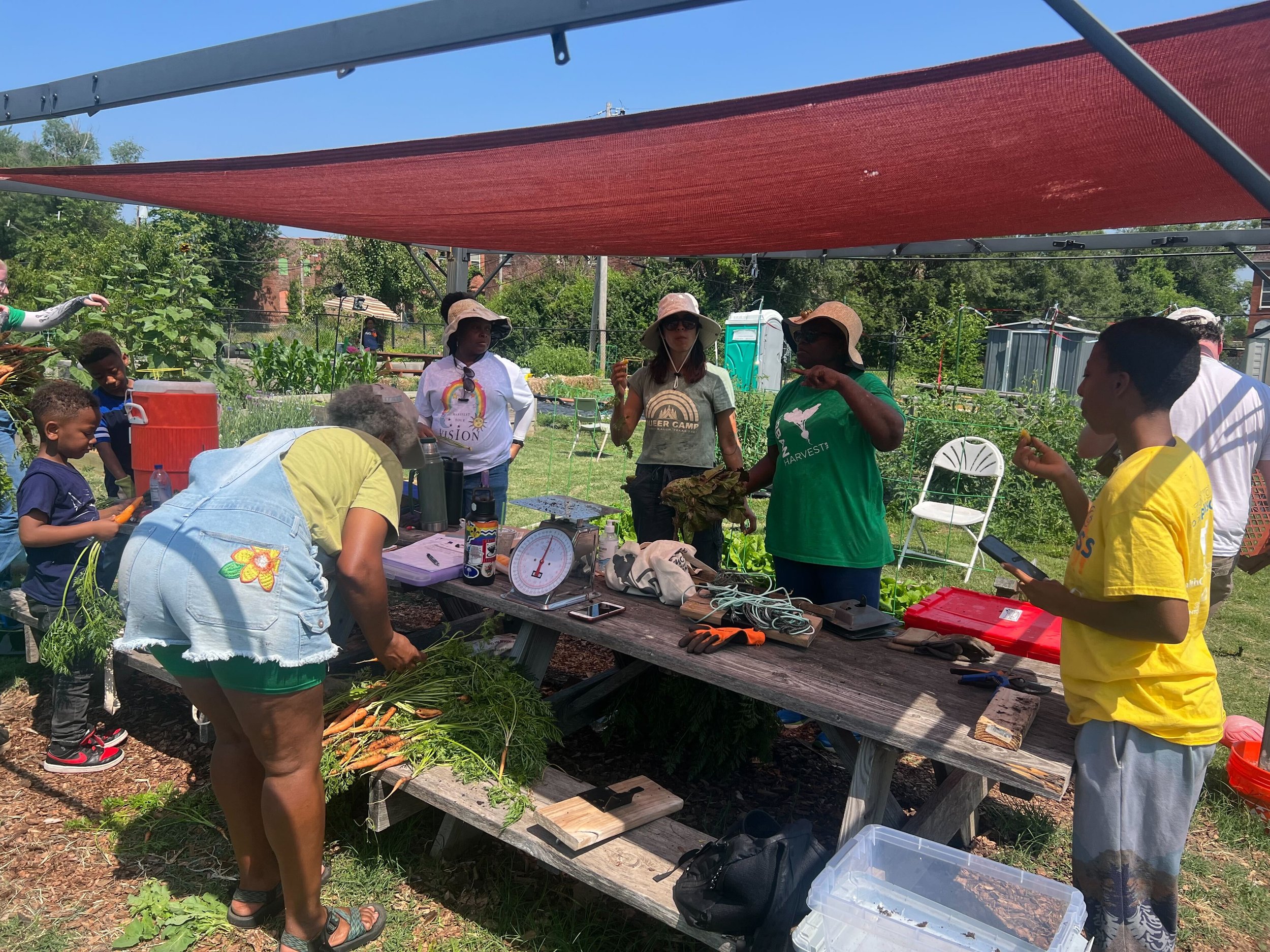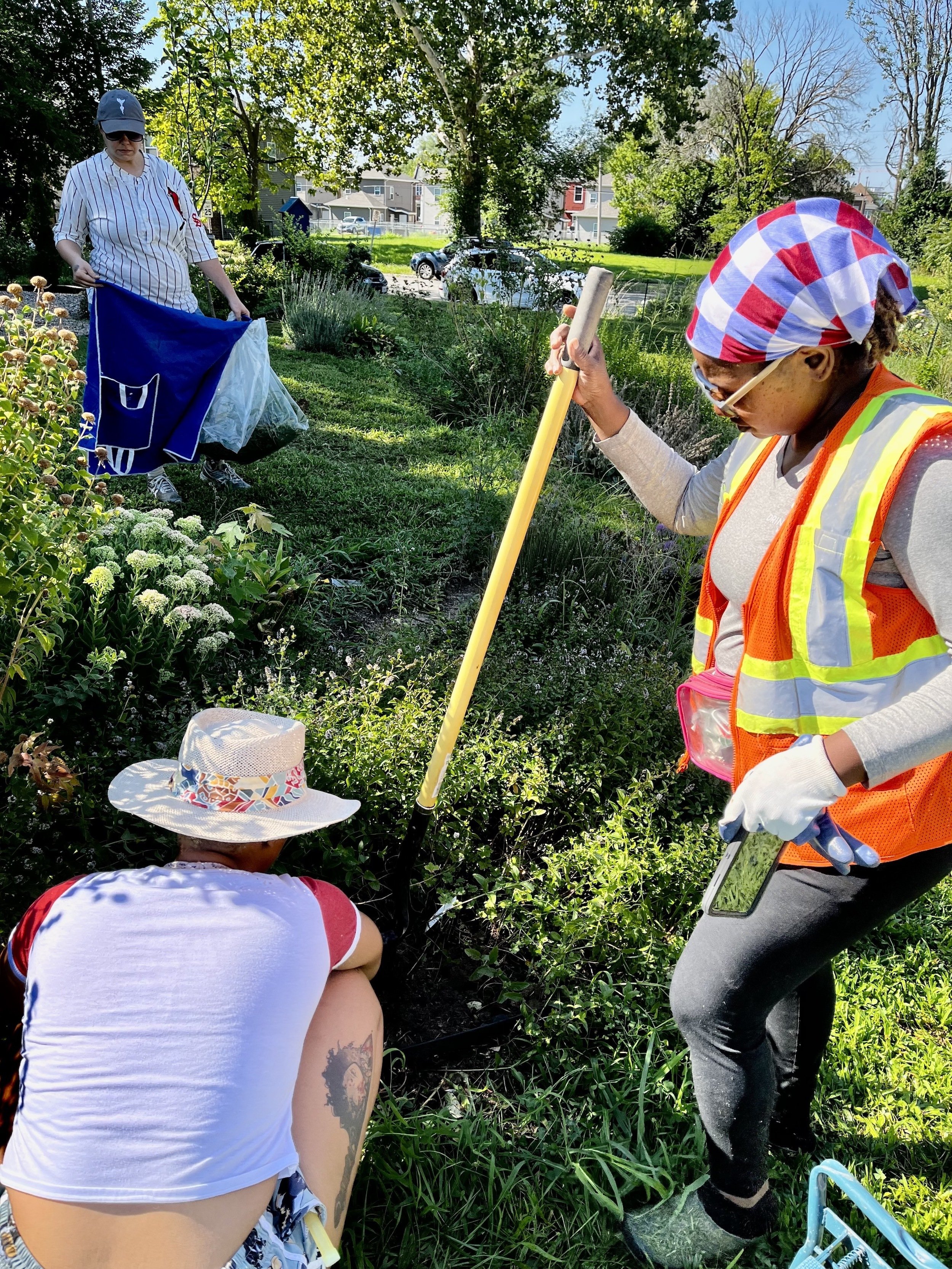Apprenticeship Program
Our Farming for Community apprenticeship empowers individuals to become more active in their gardens and communities with a focus on urban farming and food justice.
-
Our apprenticeship is focused on empowering individuals to become more active in their gardens and communities with an emphasis on ecological stewardship and community food solutions.
Apprentices will learn a variety of urban farming skills, gain a better understanding of the causes of food apartheid, and explore emerging alternatives through weekly virtual lessons. In weekly farm shifts, our Farm Educator mentors apprentices in daily operations and farming tasks. Our apprentices gain direct experience in regenerative Afro Indigenous cultivation, from building soil health to interplanting and harvesting crops.
During each session, we offer a field trip to a community-based farm or garden in our city. Apprentices will work on projects at our host sites and network with innovative local growers making a positive impact in St. Louis.
Apprentices will receive a stipend of $500 broken into two payments issued in Week 4 and upon completion of the program and a transportation subsidy of $60 for the 8 week session. In order to receive the stipend, apprentices must meet the attendance expectation for farm shifts. Apprentices will also receive a branded hat and t-shirt as well as access to our digital resource library and handbook.
Read the full role description here.
-
Interest or experience in organic and regenerative farming, sustainability, racial justice, health and community development.
Desire to learn more about community food systems and participate in our food access program.
Ability to work effectively in collaboration with diverse groups of people and stakeholders.
Ability to work independently and inspire others while contributing to the team effort.
Willingness to work in St. Louis outdoor weather conditions.
Ability to attend an in-person orientation breakfast at 9am on the dates provided.
Able to work on the farm on your assigned day each week, Thursday or Saturday, from 8 am to noon.
Communicate via Slack, a free app for phone and desktop.
Complete pre- and post-surveys regarding the program.
Ability to leave guests and children at home so as not to interfere with the participant's learning experience.
-
Spring session:
Orientation 4/26/25 9am.
Saturday shifts: 5/3 - 6/21.
Thursday shifts: 5/8 - 7/3 (No shift on 6/19).
Fall session:Orientation 7/26/25 9am.
Saturday shifts: 8/2 - 9/20
Wednesday shifts: 7/30 - 9/17
-
We are currently accepting applications for our Wednesday cohort from 7/30 - 9/17. Our other 2025 sessions are full at this time. We accept applications from residents across the entire St. Louis metro region, but priority will be given to applicants living in St. Louis city and county in the following zip codes: 63101, 63102, 63103, 63104, 63106, 63107, 63110, 63111, 63112, 63113, 63114, 63115, 63116, 63120, 63121, 63130, 63133, 63134, 63135, 63136, 63137, 63138, 63140, and 63147. To apply, please complete our application form via button on bottom of this page. If you have any questions, please contact us at admin@urbanharveststl.org.
-
Urban Harvest STL does not discriminate on the basis of race, color, national origin, religion, gender, sexual orientation, age, disability, military status, or marital status in any of its activities or operations. This policy applies to hiring and firing of staff, selection of volunteers, and provision of services. We are committed to creating a welcoming environment on our farms for all participants, visitors, partners, employees, and board members. We acknowledge that intersecting structures in our food system marginalize, oppress, and exploit Black, Indigenous and People of Color (BIPOC). We also acknowledge that BIPOC growers have shaped agriculture as we know it today, while their crucial contributions have gone largely unrecognized. By centering racial equity, we commit to working toward a just food system in all aspects of our work. We expect that staff members will advocate for our core value of equity in all aspects of their stewardship of our organization’s mission and goals.
Funding for this program was provided by the Natural Resources Conservation Service and the Bayer Fund.
